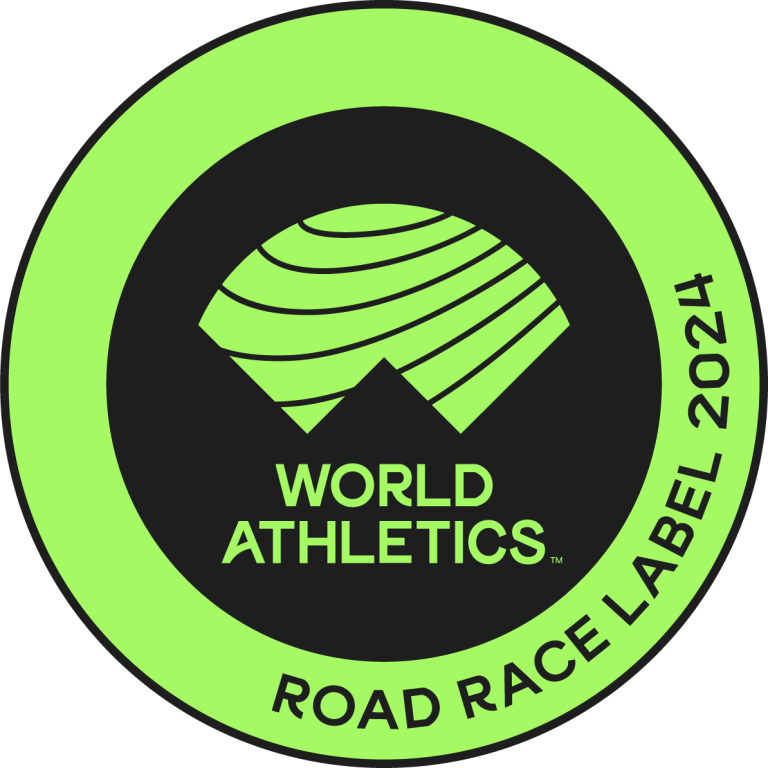INSTRUCTIONS & ADVICE THAT WILL ALLOW YOU A PLEASANT PARTICIPATION IN THE EVENT OF
“ATHENS MARATHON. THE AUTHENTIC”
In order to enjoy the unique experience of participating in the race of the “Athens Marathon, the Authentic” without putting yourself in danger, you should be healthy and in good physical condition on that day.
NOTICE
The Organizing Committee of the “Athens Marathon, the Authentic” is extremely glad with the large number of runners that choose to run the race of the “Athens Marathon, The Authentic”. Anyone may participate, even those who suffer from serious medical conditions, but only with their doctor’s consent, particularly for the Marathon Race. This is why you should visit your doctor and discuss any medical problems before the start of the event. The same applies to all participants that have not been prepared enough for the race. All participants and especially those you are above 35 years old should have gone through a cardiological check up before the race. In any case the responsibility for joining the “Athens Marathon, the Authentic” is entirely up to the runner. What follows is designed to contribute to a better update regarding your participation in the race, along with achieving the goal of a pleasant and safe race.
Attention: If you have a medical problem that may lead to you having a blackout, such as fits or diabetes, put a cross on the front of your bib number and write the details, especially your medication, on the reverse of your bib number.
ILLNESS AND TRAINING
If you have flu, a feverish cold or tummy bug, do not train untill you have fully recovered. Then start gently and build up gradually. Do not attempt to catch up on lost mileage after illness or injury – this may cause further damage or illness. If you have had flu over the last month please reconsider your participation in the “Athens Marathon, the Authentic”.
NOTE: If you cannot run 15 miles comfortably one month before the marathon, you will not manage it in safety or enjoy it. Please do not run on this occasion. You could participate in the 10km or 5km Road Race instead and enjoy finishing in the Panathinaikon Stadium.
THE DAY BEFORE THE RACE
Avoid intense training and rest early. Prepare the night before, the necessary items for your participation. Your dinner should be light and, proportionally, rich in carbohydrates (e.g. bread, rice, pasta, cereals, potatoes). Do not forget your hydration, especially if high temperatures are predicted for the season for the day of the race. Avoid alcohol.
RACE DAY
- Dress in appropriate clothing, depending on the weather. Wear shoes that you have run with before and know that they will not blister you, as well as clothes and socks that have been used and washed at least once and do not hinder your smooth movement in any way (friction, tight, loose, heavy, inappropriate materials).
- Have breakfast a few hours before the start time, a very light one, avoiding fats.
- Start early for the starting point and avoid anything that could cause you stress.
- Start your race well hydrated. Up to half an hour before the race you can consume 250ml of water, especially if the day is predicted to be hot.
- Review your race plan in time and from the beginning by slowing down your pace when weather conditions are unfavorable or deviate from the usual for the season (heat, humidity and above all a combination of them). The pace, the intensity with which you choose to run is the most critical issue when it comes to managing your forces.
DURING THE RACE
The more you are pressed to complete the race, the greater the importance of regular hydration and proper feeding. Drink regularly, but do not overdo it.
Drinking less fluid than you should can cause problems, since it is necessary to replenish fluids lost from the body through sweat. Excessive fluid consumption, on the other hand, can be particularly dangerous and may lead to hyponatremia and, in some cases, even to death. Drink fluids regularly and when you feel you need it, but not in large quantities before, during and after the race.
The fluid needs of each athlete vary depending on how much he/she sweats, his/her physique, the speed he/she runs and, most importantly, the climatic conditions prevailing on the day of the race.
The fastest athletes (under 3.30 hours) may need one liter of fluid per hour on a hot day Slower athletes may need less. On a cool day, it usually does not take more than 500 ml per hour.
Prefer drinks and food you have already tried before. Prefer fluid and jelly concoctions that are easier for the body to digest. However, it is not contraindicated to feed with dry food during a long load, especially for slower runners, if this measure has already been tried. Trust the supply of the stations of the Organizing Committee, although you can carry the concoction of your choice yourself.
There are several support stations where water is supplied. This doesn’t mean it’s necessary to drink water at every station, but be sure to take large sips regularly. If you need isotonic drinks instead of water, these will be provided at predetermined stations (see relevant table).
Run lightly, especially if your level of preparation for the race you are participating in is not satisfactory. Follow this advice and you will most likely meet the demands of the race without needing medical help. Doctors and volunteers providing First Aid will be on the route and will cover the entire race routes, not just the points where there are supply stations. If you give up, head to the nearest station where medical assistance is provided.
Pay attention to these tips and follow them as a guide before and during the Marathon.
AT THE FINISH
When you finish, do not stand still. Keep walking, especially if you feel dizzy and drink enough fluids to make up for what you’ve lost during the race (especially those finishing the marathon).
Head to the pick-up area as quickly as possible, take your backpack and wear dry and warm clothes. The use of the isothermal blanket is a temporary measure, it is not sufficient to prevent colds or hypothermia. Then be sure to drink something, but slowly, as well as eat, always at the same pace. After finishing, do not drink large amounts of water. You can hydrate gradually and regularly over the next 24-48 hours. Eat some salty food and be sure to drink fluids at regular intervals. This way, you will avoid hyponatremia, as you will replenish the water, the salt and the glycogen you have lost during the race.
Some athletes feel that they will faint even an hour and a half after competition because they do not drink enough fluids or do not eat well. But even then, do not drink excessively. If for any reason you feel weak, dizzy, unable to move, immediately contact the attending medical staff.
Within the next few hours after your finish, if you are not strongly hindered by an injury, be sure to move for a while, walking. This will help you recover from your great effort sooner.
Although it does not remove the reason of fatigue, a very light, gentle massage by a specialist could provide a sense of relief and accelerate the course of recovery.
GOOD LUCK!



